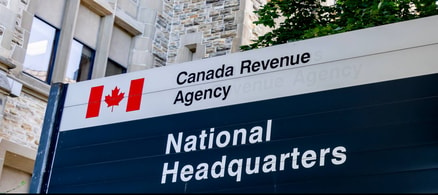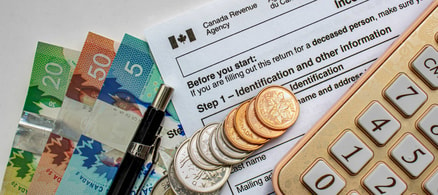Why does the CRA reach out?
The CRA can contact individuals for any reason. In most cases, they may want further details about an item you’ve claimed on your return, including:
- Medical expenses
- Capital gains related to the disposition of real estate
- Consistent losses from self-employment income
- Vehicle expenses
- Foreign tax credits
- Significant changes from your filing history
The CRA is typically seeking documents that will verify your claims. For example, if you’ve claimed unusually high medical expenses, they may want you to provide detailed receipts.
Maximize Your Tax Refund with TurboTax Canada!
Simplify tax season with this user-friendly software. Get step-by-step guidance, maximize deductions, and file with confidence. Trusted by millions, TurboTax Canada ensures accuracy and peace of mind. Start your taxes today and get the refund you deserve
Get the tax refund you deserveVerify that it’s the CRA contacting you
In most cases, the CRA will contact you by sending you a formal letter when requesting additional information. They may also call you or send you a secure message directly to your CRA online account.
That said, fraudsters can contact you via phone posing to be a CRA agent. Here are a few things to consider before you provide any information:
- A legitimate CRA agent will provide their name, number, and office location. With that information, you can contact the CRA directly to verify the person’s identity.
- CRA agents will not use aggressive language or pressure you into making quick decisions.
- The CRA does not ask for payments in cryptocurrency, prepaid credit cards, or gift cards.
- The CRA will never ask you questions unrelated to your tax return, such as your credit card information.
- CRA agents will never offer to apply for benefits on your behalf.
Respond to the CRA
Once you’ve verified the authenticity of the request, you can gather the required documents. The letter will typically describe exactly what you need to provide. You’ll also want to make note of the reference number (included in your letter), the date you need to respond by, and the office that’s handling this request.
More from Money.ca
- Did you receive CRB last year? How to know if you’ll take a hit at tax time
- When can you toss tax returns and other records?
- Barry Choi: Simple tips to avoid the stress of tax time
Before you send your documents, make copies so that you can keep them for your own records.
Once you’re ready to submit your documents, you have the following options:
- Login to your CRA online account and upload all of your documents.
- Send the documents by standard mail. Be sure to include a cover letter that lists your reference number and any other relevant details.
- Fax your documents. The fax number should have been provided in the request letter.
When uploading files online, you’ll get a confirmation number: Keep the number for your records. If there was a problem with any of the files or documents received, the CRA may request that you resubmit them.
Grow Your Savings Effortlessly with Moka
Automate your savings with every purchase and watch your money multiply. Moka rounds up your transactions and invests the spare change. Start building wealth effortlessly today. Join thousands of Canadians embracing financial freedom with Moka
Sign up nowKeep all your records on file
Since there’s no way of telling what information the CRA may ask for, you need to keep all your records, or at least have access to them for at least six years following the related tax year.
This six-year rule would apply to all your tax documents, not just expenses. In other words, hang onto all your income statements, receipts, and any other relevant documents. There’s always a possibility that the CRA asks to review or audit your taxes at a later time. Having all your documents in one place will ensure that you’re prepared.
What happens if you don’t respond
If you choose to ignore the request for additional information, or you forget to respond, the CRA may reassess your tax return. That could result in taxes owed, penalties, and interest payments. Plus, there’s a possibility that your tax return could be flagged for further review, such as an audit.
If you’ve filed your tax return honestly, there’s no reason to fear any requests from the CRA. All they’re looking for are details, especially if there’s been a major change to your income or expenses. Most of the time when you provide the supporting documents, you won’t hear from the CRA again until you get your notice of assessment.
Sponsored
Trade Smarter, Today
With CIBC Investor's Edge, kick-start your portfolio with 100 free trades and up to $4,500 cash back.







